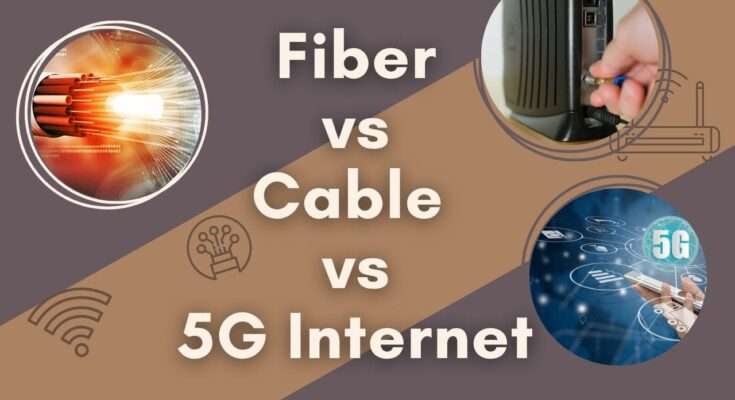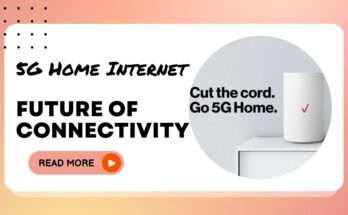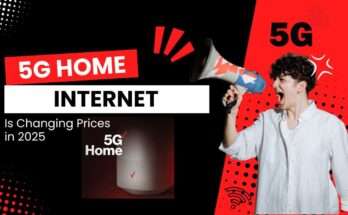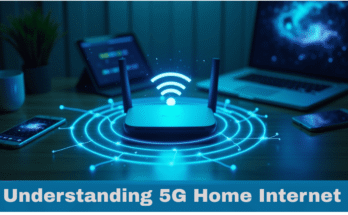Selecting your Internet in 2025? Fiber results in robust efficiency, lightning-fast speed and continuous uploading. This is suitable for future guarantees and big users. Cable delivers reliable speed and broad presence, but can weaken behind fiber and experience data caps. 5G emerges bright with convenient installation and cost-effective rate, but efficiency and speed differ by destination. For maximum users, fiber is the best worth unless you require a versatile, fast and affordable wireless solution. This article will provide fiber vs cable Internet and its significance.
5G Home Internet vs Cable Overview
5G Home Internet delivers convenient installation, wireless connectivity and versatile cost with no contracts or data caps. Speeds are quick and enough for maximum consumers, but can swing because of distance from restrictions or towers. Cable Internet through a wired structure offers a broader presence, slower speeds and excellent efficiency. This is perfect for strong consumers or big families. Cable Internet may involve additional contracts and charges. Select 5G for versatility and cable for reliability. It’s the major difference between 5G Home Internet vs Cable.
Comparing Cable vs Fiber Internet Performance and Speed
| Technology | Typical Download Speed | Typical Upload Speed | Memorable Features |
|---|---|---|---|
| Fiber | 100 to 50000 Mbps | 100 to 50000 Mbps | Ultra efficient. Consistent speeds. Future-proof |
| Cable | 25 to 2000 Mbps | 5 to 100 Mbps | Simple bundling. Broad presence. |
| 5G | 50 to 1000 Mbps | 20 to 75 Mbps | Convenient installation. Wireless. Versatile packages. |
Fiber is the top winner for efficiency and speed that delivers consistent download and upload speeds, which are unparalleled by 5G or cable. This makes fiber perfect for huge Internet consumers, gamers, rural workers and anyone who requires to upload huge files or broadcast in ultra-high definition.
Cable is a robust Internet type that delivers quick download speeds and a wide presence. However, upload speeds are much steadier which can be a major disadvantage for cloud backups, video discussion or digital gaming. An Internet cable service provider is perfect for every user for streaming, gaming and working online.
5G Internet service is the most versatile and simplest to set up, but speeds are highly dynamic and versatile. As a few consumers may observe gigabit download and others may enjoy much lower speeds, particularly in regions with weak 5G extent or during network disturbance.
Cable vs Fiber vs 5G Home Internet Plans and Pricing
| Technology | Usual Cost | Contracts | Data Caps | Features |
|---|---|---|---|---|
| Fiber | $40 to $130 per month | Rare | Rare | Cost Security. No Contracts. |
| Cable | $20 to $105 per month | Common | Common | Simple Presence. Bundles. |
| 5G | $35 to $70 per month | None | Rare | Convenient Installation. No Contracts. |
Fiber packages are reasonable for the offered speeds with multiple providers delivering cost-security confirmations and no contracts. The most typical fiber packages offer Internet plans between $40 to 490 monthly, but multi-gigabit packages can be much costly.
Cable Internet plans are the affordable alternatives for starting packages, but costs can go up after the promotional duration and data caps or contracts are typical. Combining with phone or TV can attach worth but may also exceed your monthly bill.
5G is the most convenient Internet type in terms of cost with maximum packages costing almost $50 monthly and no contracts or hidden charges. Papers are available for established mobile consumers.
Reliability and Availability
Fiber Internet plans are the robust and most efficient alternatives, but their presence are restricted. Almost 42% of the United States has access to fiber and even in cities, the extent can be intermittent.
Cable is broadly present, surrounding maximum urban and suburban regions. It’s a reliable alternative for maximum families, but efficiency and speed can slow down during rising hours.
5G is quickly expanding and is an excellent option in remote or underprivileged regions where cable alternatives are restricted. Efficiency relies on your closeness to a 5G tower and speeds can swing.
Is It Worth Your Money in 2025?
If fiber is present in your region, it is typically valued funding. The bundling of efficiency, speed and future-guarantee makes it the top alternative for maximum users, particularly as distant work and high-bandwidth components become more typical.
Cable is a reliable and strong option for maximum families. It’s broadly present, delivers excellent speeds for maximum situations and is simple to combine with other services. However, know the contracts and possible cost exceeds.
5G Home Internet plans are excellent options for those who can’t obtain cable or fiber. It is particularly worth it in remote regions or for users who need an easy and contract-free Internet formula. Be ready for a few variations in efficiency and speed. To know more about Internet plans, get in touch with the Internet Cost Saver customer care number – +1(855)-208-9742.



